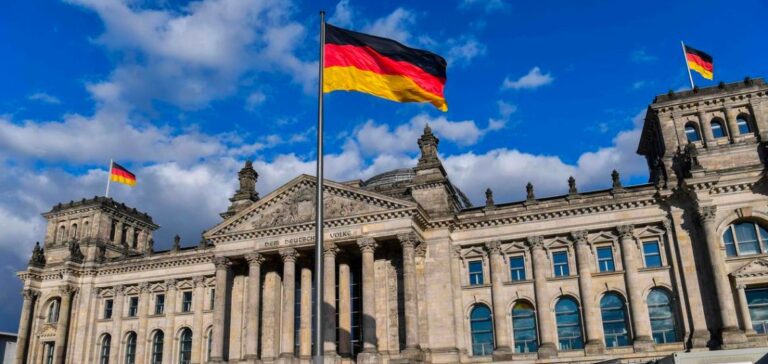Germany’s Gross Domestic Product (GDP) is expected to decline by 0.3% in 2023 under the impact of massive inflation and the lack of Russian gas, against the backdrop of the war in Ukraine, according to a study by the IFO institute published Monday.
“We are sliding towards a winter recession,” says Timo Wollmershäuser, director of economic research at the institute, one of the most influential in Germany, which has lowered its previous forecast of June by four points.
The IFO expects a technical recession in the first quarter of 2023, with a 0.4% drop in GDP, following a 0.2% decline in the fourth quarter of 2022.
The cause: the “decreases in Russian gas supply this summer” and “the resulting massive price increases”, he explains.
Average inflation is thus expected to rise to 9.3% next year, after 8.1% in 2022, he added.
Gazprom has drastically reduced its gas deliveries to Germany through Nord Stream in recent months, before stopping them at the beginning of September, against the backdrop of the standoff between Moscow and the European Union over the war in Ukraine.
Germany, which before the war had 55% of its supplies from Russia, had to find them elsewhere, at much higher prices. These tensions have caused the price of gas and electricity in Europe to skyrocket, causing inflation to soar.
And the movement is expected to continue: “Energy suppliers will significantly adjust their electricity and gas prices (…) especially in early 2023″, the IFO estimates.
The president of the German central bank, Joachim Nagel, also considered it “possible” that Germany could slip into recession as early as the third and fourth quarters of this year, and remain there until the beginning of next year, in an interview given on Sunday to the German radio station Deutschlandfunk.
The inflation rate will rise to about 11% in the first quarter of 2023, severely affecting household purchasing power, the IFO predicts.
The German government adopted in early September a third plan of measures to help the poorest, but this will not be able to compensate for the expected loss of purchasing power, according to the IFO.
“The decline in real wages, by about 3% this year as well as next, will be the highest since the introduction of national accounts in 1970″, Wollmershäuser anticipates.
However, the situation could “normalize” again in 2024 with “growth of 1.8% and inflation of 2.5%,” he concludes.






















